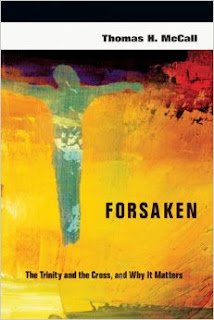Does God care? (divine impassibility)

This post continues the series exploring the book Forsaken (The Trinity and the Cross, and Why it Matters) by Tom McCall . For other posts in the series, click a number: 1 , 2 , 3 , 4 , 6 , 7 , 8 . An accurate discussion concerning God's love and wrath must account for the full doctrine of God, which includes the topics of divine impassibility and divine simplicity. In this post we'll look at what McCall has to say about the first. Does God suffer with those who suffer, or is he the "Unmoved Mover"? According to McCall, some misunderstand divine impassibility to mean that God, by definition, is without emotions ("affections"). From this perspective, God is seen to be "cold and detached, the 'Unmoved Mover'" (p64). Understandably, many modern Christians reject this viewpoint, instead embracing a "revisionist viewpoint," which states that... God is "relational" and "dynamic"... a God who is...
